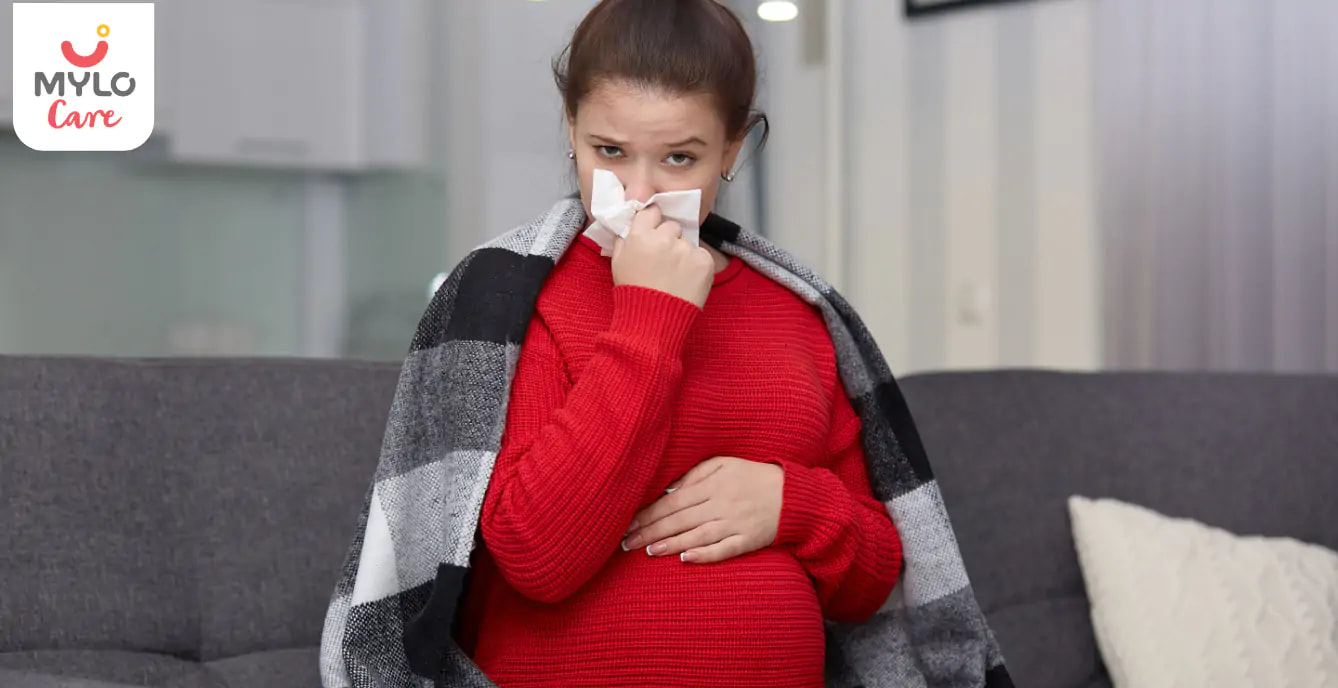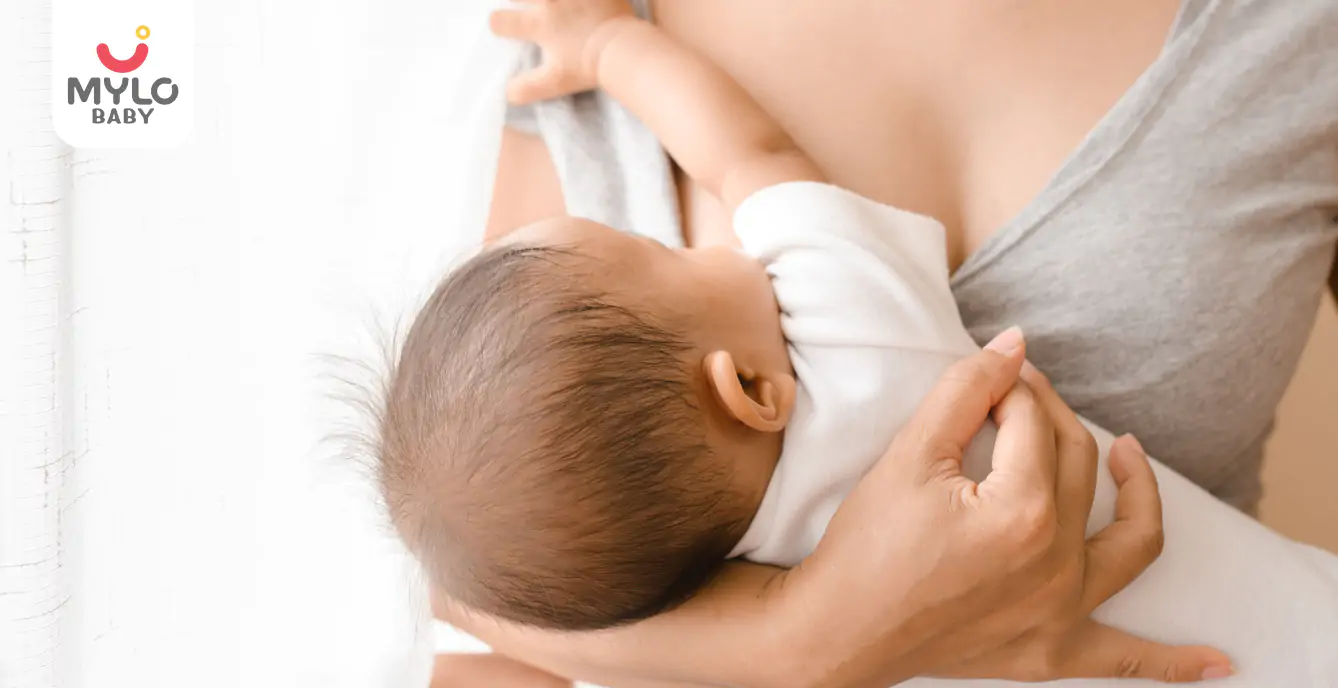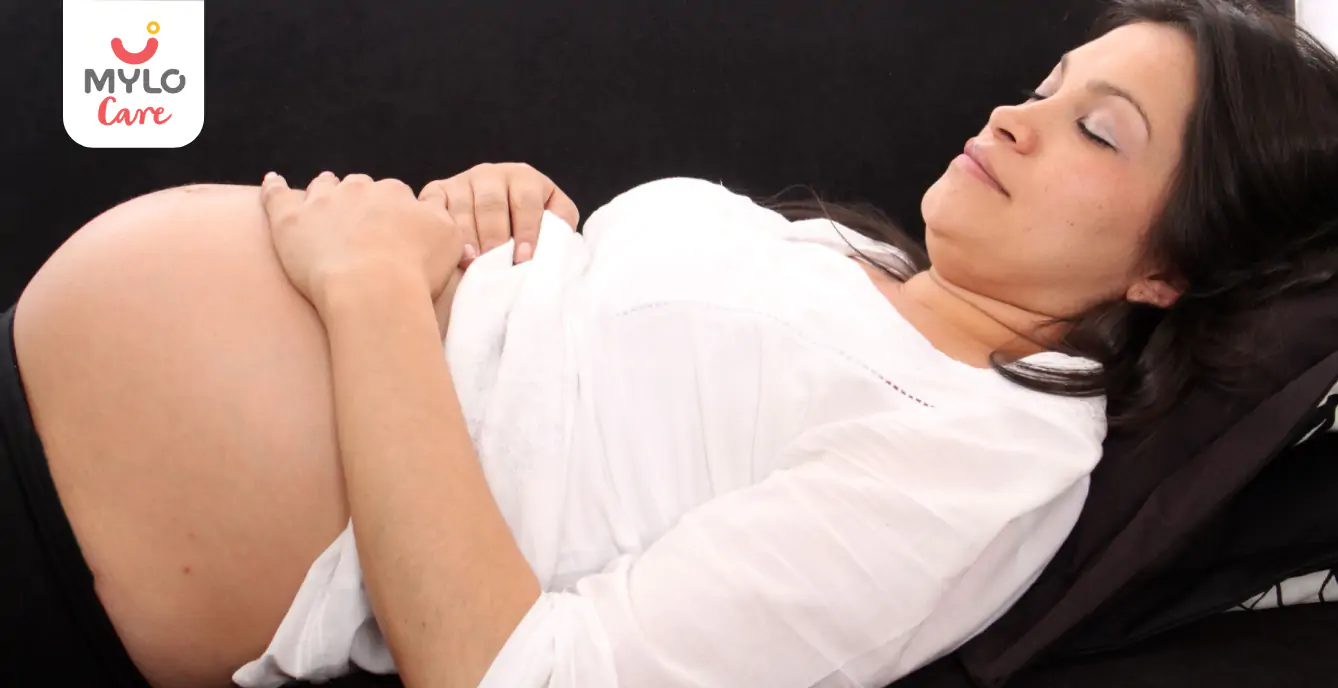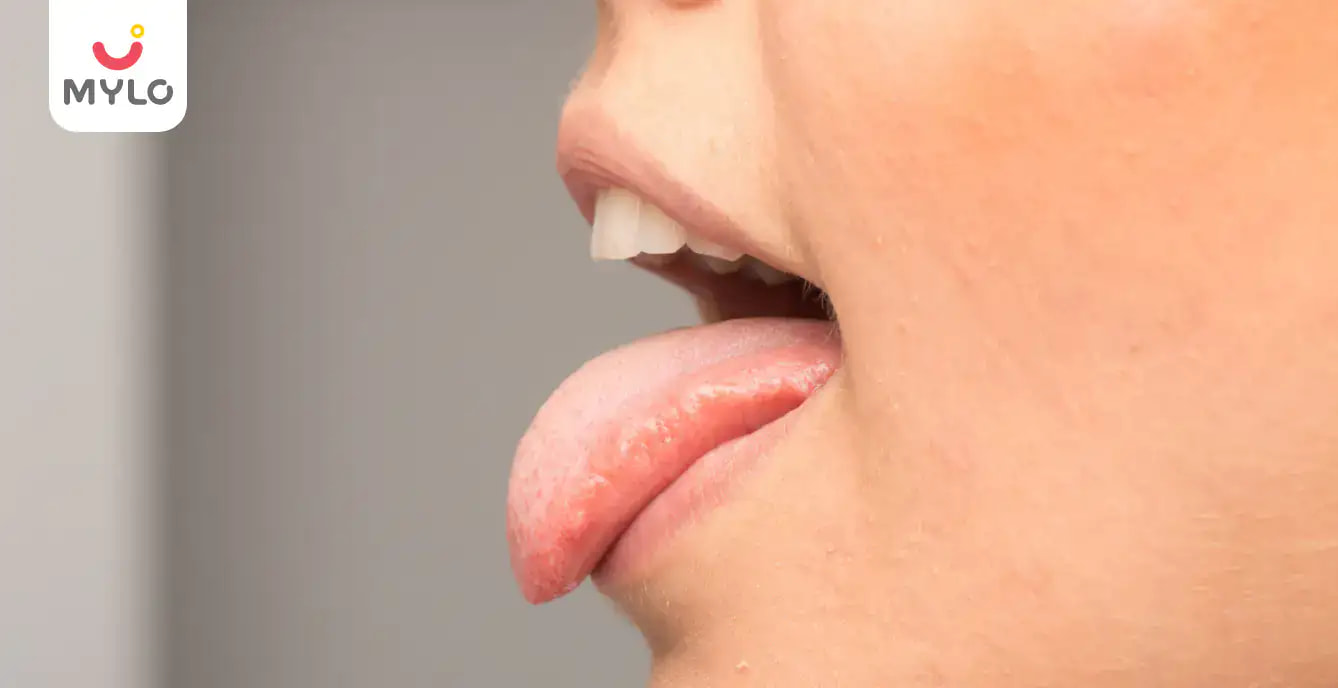Home

Allergies

Sneezing During Pregnancy: Causes, Risks and Treatment
In this Article

Allergies
Sneezing During Pregnancy: Causes, Risks and Treatment
Updated on 6 March 2024



Medically Reviewed by
Dr. Shruti Tanwar
C-section & gynae problems - MBBS| MS (OBS & Gynae)
View Profile

Pregnancy is a time of many changes and challenges for women. While most women expect the usual symptoms such as morning sickness and fatigue, they may be surprised to find themselves sneezing more than usual. Sneezing is a reflex action that helps clear the nose of irritants, but when sneezing during pregnancy happens too frequently, it can be a cause for concern.
In this article, we will explore the causes, risks, and treatment options for sneezing to help expectant mothers better understand this common pregnancy symptom. We will also answer frequently asked questions like can sneezing cause miscarriage in early pregnancy.
Sneezing in Pregnancy
During pregnancy, everything becomes very sensitive, even your nasal passage and respiratory system. You could acquire allergies to the stuff you were never allergic to. The increase in blood volume can accelerate the swelling of the capillaries in your nose and result in congestion in the nasal passage.
Furthermore, pregnancy hormones can cause more mucus production and aggravate a cold-like condition causing nasal congestion, sniffling, and continuous sneezing. Generally, these sniffles and sneezing won't trouble you too much unless you are sick. But, during pregnancy, it may concern you or raise doubts.
You may also like: 12 Effective Home Remedies for Treating Cough and Cold During Pregnancy
Causes of Sneezing During Pregnancy
There are several reasons why a woman may start sneezing in pregnancy such as:
1. Pregnancy rhinitis
Pregnancy causes various changes in the body. These changes can result in pregnancy rhinitis, a condition that affects 40% of women at some level during their pregnancy. Pregnancy rhinitis often leads to extra nasal congestion, which can last six weeks or longer during pregnancy and can cause various symptoms, including increased sneezing.
Blood flow to the mucus membrane increases during pregnancy. The nose is made of mucus membranes. The extra blood flow leads to swelling in the nasal passages, which results in watery discharge and congestion. The watery discharge and congestion can cause increased sneezing.
2. Illness
Pregnant women tend to have weaker immune systems and are more prone to get a cold, flu, or another bug. During pregnancy, the body's immune system reacts more slowly and gently since it does not want to mistake the baby for something harmful. Colds are usually harmless during pregnancy, but flu or any other illness that can lead to fever can be dangerous for both mother and the baby. Expectant mothers who are sneezing and think they may have the flu or another illness leading to fever should immediately call a doctor.
You may also like: Should Pregnant Women Get Flu Shots?
3. Allergies
Women with allergies that result in sneezing and other upper respiratory symptoms when they are not expecting will likely still have allergy symptoms while pregnant. Seasonal allergies, like hay fever, pollen, and indoor allergies, can all initiate sneezing.
Risks of Sneezing in Pregnancy
Does sneezing affect pregnancy? No, sneezing in early pregnancy is quite common. Your body is built to keep your baby very safe. Sneezing cannot harm your baby. Sneezing doesn't threaten your baby at any stage of pregnancy, not even sneezing during pregnancy first trimester. However, sneezing can be a sign or symptom of an illness or disease, like flu or asthma.
When you develop the flu, so does your baby. When you're having difficulty breathing, the baby isn't receiving the required oxygen either. Consult your doctor if you have either the flu or asthma, as there are considerations they make for pregnancy to ensure suitable birth outcomes.
Some pregnant women also suffer a sharp pain radiating around their bellies when they sneeze, which can be painful but isn't dangerous. As the uterus grows, the ligaments that connect it to the side of the abdomen are stretched, which is referred to as round ligament pain. Sneezing and coughing can exert more pressure on the ligament, leading to stabbing pain.
Treatment for Sneezing During Pregnancy
Sneezing in pregnancy or pregnancy rhinitis is disturbing at all times. Pregnant women enduring it can get tired and feel drained out due to the continuous sneezing. Therefore finding a way to combat it is essential. Some of the treatment options include:
1. Medical treatments
Treating sneezing in pregnant women can be difficult because they cannot consume most of the medications they could take before. However, you can seek medical advice from your doctor, who may prescribe analgesics or antihistamines, depending on the diagnosis. Antihistamines are prescribed to cure inflammation and specific allergies. Analgesics are found in cold pills like acetaminophen and ibuprofen and are non-steroidal and used in dealing with inflammation. If taken early during pregnancy, acetaminophen and ibuprofen do not result in complications or risk of congenital disabilities in the baby.
You may also like: Which Cough Syrup is Safe in Pregnancy?
2. Natural treatments
Before taking any allopathic medication, it is better to try some sneezing during pregnancy home remedies.
-
Inhaling steam can soothe and clear the nasal passage.
-
You can also add a drop or two of peppermint oil or eucalyptus oil to relieve congestion.
-
Healthy soups and salads with some black pepper can also help relieve sneezing. You can also begin drinking lukewarm water mixed with one teaspoon of pepper powder 2-3 times daily. Gargling with warm water mixed with pepper powder also assists in controlling sneezing.
-
Due to its medicinal properties, ginger is the most sought-after ingredient in Indian kitchens. Boil some water, add some crushed raw ginger, and simmer the concoction for 3 to 5 minutes, then let it cool. Mix a spoonful of honey and drink a cup of this medical concoction before going to sleep at night; this tea will help stop sneezing in pregnancy.
-
Consuming garlic can help in combating infection. You can select to eat it raw or cook it with other dishes. You can also mash some cloves of garlic and smell them. The pungent aroma of garlic can help decrease inflammation in the nasal passage.
You may also like : How to prevent cold and flu during pregnancy?
When Should You Visit a Doctor
Continuous sneezing is quite troublesome, but often it isn't a cause for concern. However, call your doctor immediately if you experience any following symptoms along with sneezing:
-
You are having respiratory issues and chest pain.
-
You are down with a fever that is more than 100 degrees.
-
You have a loss of appetite.
-
You are unable to sleep and have a severe headache.
-
You are gasping while speaking or breathing.
-
The color of the mucus you are coughing up is either yellow or green.
You may also like: The Complete Vaccination Schedule for Pregnant Women
FAQs
1. Can sneezing cause miscarriage in early pregnancy?
You may be more prone to sneezing in pregnancy, but rest assured that it does not harm you or your baby. It isn't a sign of complications and doesn't result in miscarriage.
2. Does sneezing while pregnant influence the baby's sex?
Despite many stories, tales, and myths highlighting ways to impact the sex of the baby, sneezing cannot determine or change the sex of the baby. A baby's sex is deduced at conception by a chromosome from the male's sperm.
3. Can a pregnant woman sneeze out her baby?
No. A baby will not be born because a pregnant woman sneezes.
4. Can sneezing be harmful during pregnancy?
Every woman's immune system is at an all-time low during pregnancy. Low immunity leads to an increase in sensitivity which results in allergic reactions and may lead to inflammation in the nasal passage, throat, and respiratory system. However, continuous sneezing can be bothersome and tiring, but it is not harmful.
5. What does sneezing a lot during pregnancy mean?
Many women sneeze a lot when they are pregnant. Doctors refer to this as pregnancy rhinitis. Some of the symptoms include a runny nose, stiffness, and sneezing. It is generally related to hormonal changes, although the causes are unknown.
6. Does sneezing affect the baby?
Sneezing will generally not harm the baby. The baby is well-protected in the uterus, and even a hard sneeze will not impact the baby. The only time that sneezing may be problematic for the baby is if the sneezing is the symptom or sign of an underlying illness or disorder.
Summary
Sneezing during pregnancy is quite regular and a frequent occurrence for many. Sneezing in pregnancy is mostly harmless, but sometimes it can be a sign of an underlying problem. It may be essential to consult a doctor in such cases. Your baby is well-protected and won't be hurt by a sneeze. You can use some home remedies to get relief from sneezing.
References
1. Goanta, C.M; Cirpaciu, D; et al. (2018). Pregnancy rhinitis. Balkan Medical Union
2. Shazia R. Chaudhry, Khalid Chaudhry; (2018). Anatomy, abdomen and pelvis, uterus round ligament; NCBI
3. Erebara A, Bozzo P, Einarson A, Koren G. (2008). Treating the common cold during pregnancy. NCBI





Medically Reviewed by
Dr. Shruti Tanwar
C-section & gynae problems - MBBS| MS (OBS & Gynae)
View Profile


Written by
Anupama Chadha
Anupama Chadha, born and raised in Delhi is a content writer who has written extensively for industries such as HR, Healthcare, Finance, Retail and Tech.
Read MoreGet baby's diet chart, and growth tips

Related Articles
RECENTLY PUBLISHED ARTICLES
our most recent articles

Comfort vs. Style: The Pros and Cons of Wearing Heels During Pregnancy

Food Cravings
A Mom-to-Be's Handbook to Safely Savoring Momos in Pregnancy

Diet & Nutrition
Chicken During Pregnancy: The Ultimate Guide to Safe and Nutritious Eating

Diet & Nutrition
How To Prepare Food For Your Infant/Toddler Safely? Here Are Some Tips That You Must Not Forget While Preparing Food

Negative Brand Discussions
Lactational Amenorrhea Method: A Safe and Effective Contraception for Postpartum Moms

What to Do to Help Fall Asleep Faster During Pregnancy?
- Home Remedies to Control High Blood Pressure in Pregnancy
- Pizza During Pregnancy: Cravings, Comfort, and Caution for Moms-To-Be
- Baby Milestones for Development, Growth & Health in the First Year
- The Ultimate Collection of International Women's Day Quotes
- The A-Z Guide to Identifying Vegetables Name in English for Children
- Grapes in Pregnancy: The Ultimate Guide to Benefits & Precautions
- Postpartum Exercise: What to Know About Exercising After Pregnancy
- Baby Crawling: A Parent's Guide to Baby's First Moves
- Postpartum Diet Plan: Your Postpartum Nutrition Guide
- The Ultimate Guide to Crafting the Perfect Baby Photoshoot
- Lupride Injection: How It Works and What You Need to Know
- Why are Some Women Recommended HCG Injection During Pregnancy?
- Sudden Infant Death Syndrome (SIDS): Meaning, Causes & Prevention
- Period After Abortion: What to Expect About Timing, Duration and Frequency


AWARDS AND RECOGNITION

Mylo wins Forbes D2C Disruptor award

Mylo wins The Economic Times Promising Brands 2022
AS SEEN IN
















- Mylo Care: Effective and science-backed personal care and wellness solutions for a joyful you.
- Mylo Baby: Science-backed, gentle and effective personal care & hygiene range for your little one.
- Mylo Community: Trusted and empathetic community of 10mn+ parents and experts.
Product Categories
baby carrier | baby soap | baby wipes | stretch marks cream | baby cream | baby shampoo | baby massage oil | baby hair oil | stretch marks oil | baby body wash | baby powder | baby lotion | diaper rash cream | newborn diapers | teether | baby kajal | baby diapers | cloth diapers |







